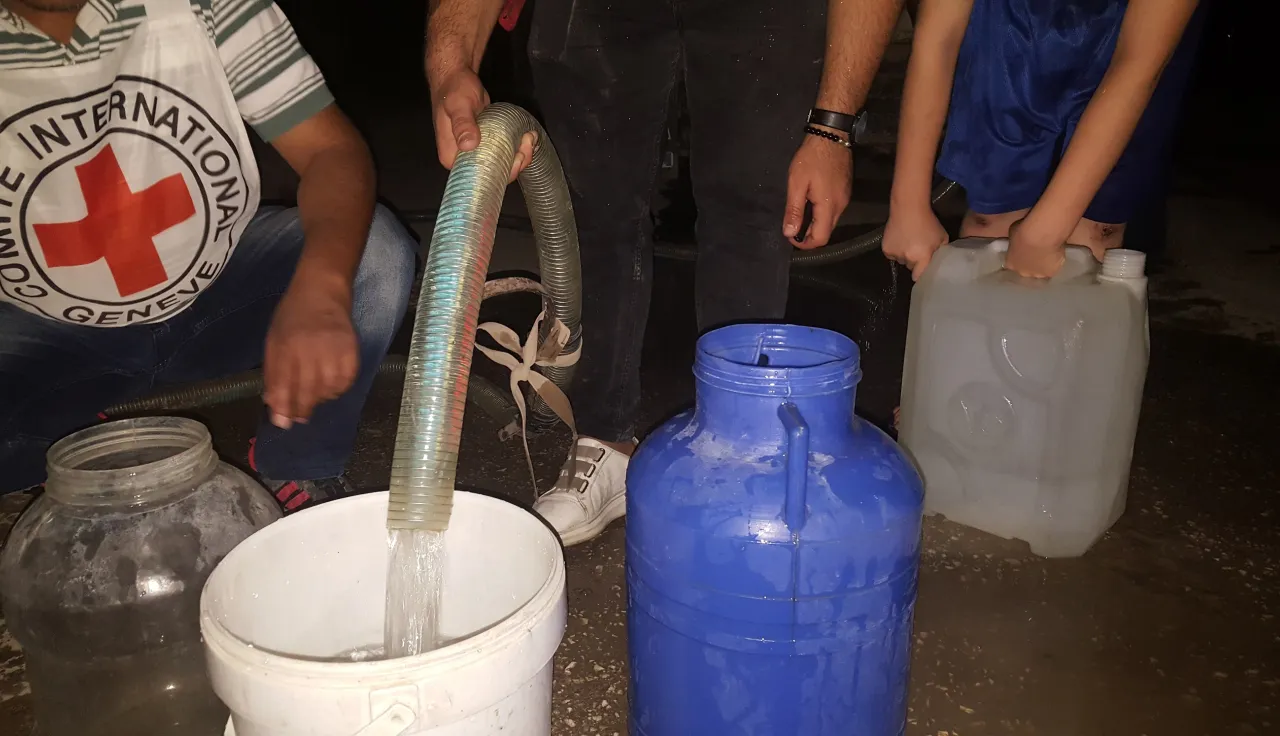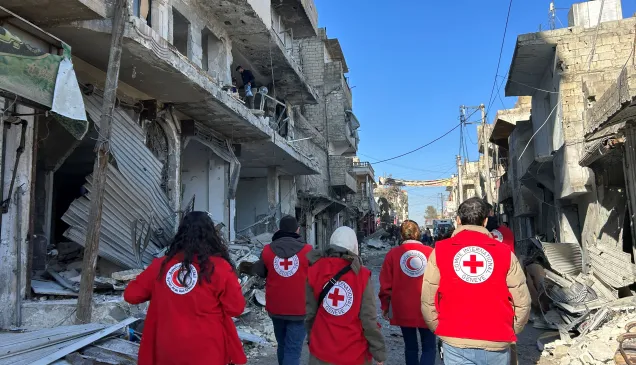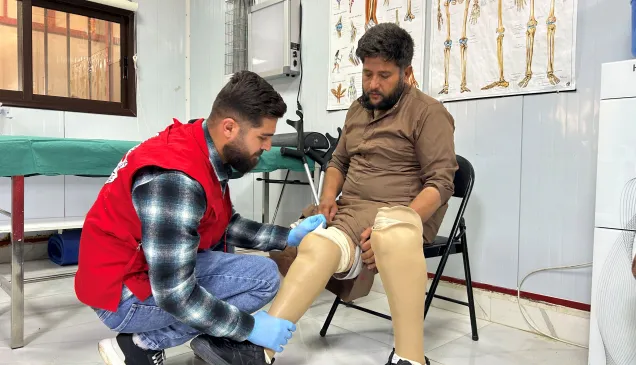Geneva (ICRC) – The International Committee of the Red Cross (ICRC) is deeply concerned for the civilian population in north-east Syria amid an ongoing shutdown of a key regional water pumping station.
The Allouk pumping station, which usually serves more than 400,000 people in and around Hasakeh, has not been functional since 30 October 2019. The ICRC and Syrian Arab Red Crescent have been taking emergency measures to find alternative sources of water for people in the region.
"It's imperative that we find a solution to this nascent water crisis. A water station that serves 400,000 people is a critical piece of infrastructure that must be put into action. This is another example of civilians who are not taking part in conflict suffering from it nonetheless," said Fabrizio Carboni, the ICRC's regional director for the Near and Middle East. "We call on all parties to ensure safe access to conduct any necessary repairs."
International Humanitarian Law aims at ensuring that basic needs of civilians are met, even in times of conflict. In north-east Syria, the infrastructure (e.g. water stations and dams) for water supply systems happen to be located near the frontlines, and it is critical that they are protected.
The ICRC and SARC are following the water situation and adapting their emergency response to help alleviate the impact as much as they can. In the week ending 3 November 2019, the ICRC distributed a total of 460,000 litres of drinking water and regular support to Al Hol Camp, Areesha Camp, centers for internally displaced people in Hasekah city, and places of detention.
The ICRC urges all parties to the conflict to respect civilian life by taking every possible measure to protect and respect civilians and civilian infrastructure, and to allow safe passage for those who want to escape the fighting in search for safety.
For more information, please contact:
Ruth Hetherington, ICRC Geneva, +41794473726, rhetherington@icrc.org
Sarah Alzawqari, ICRC Lebanon, +9613138353, salzawqari@icrc.org




